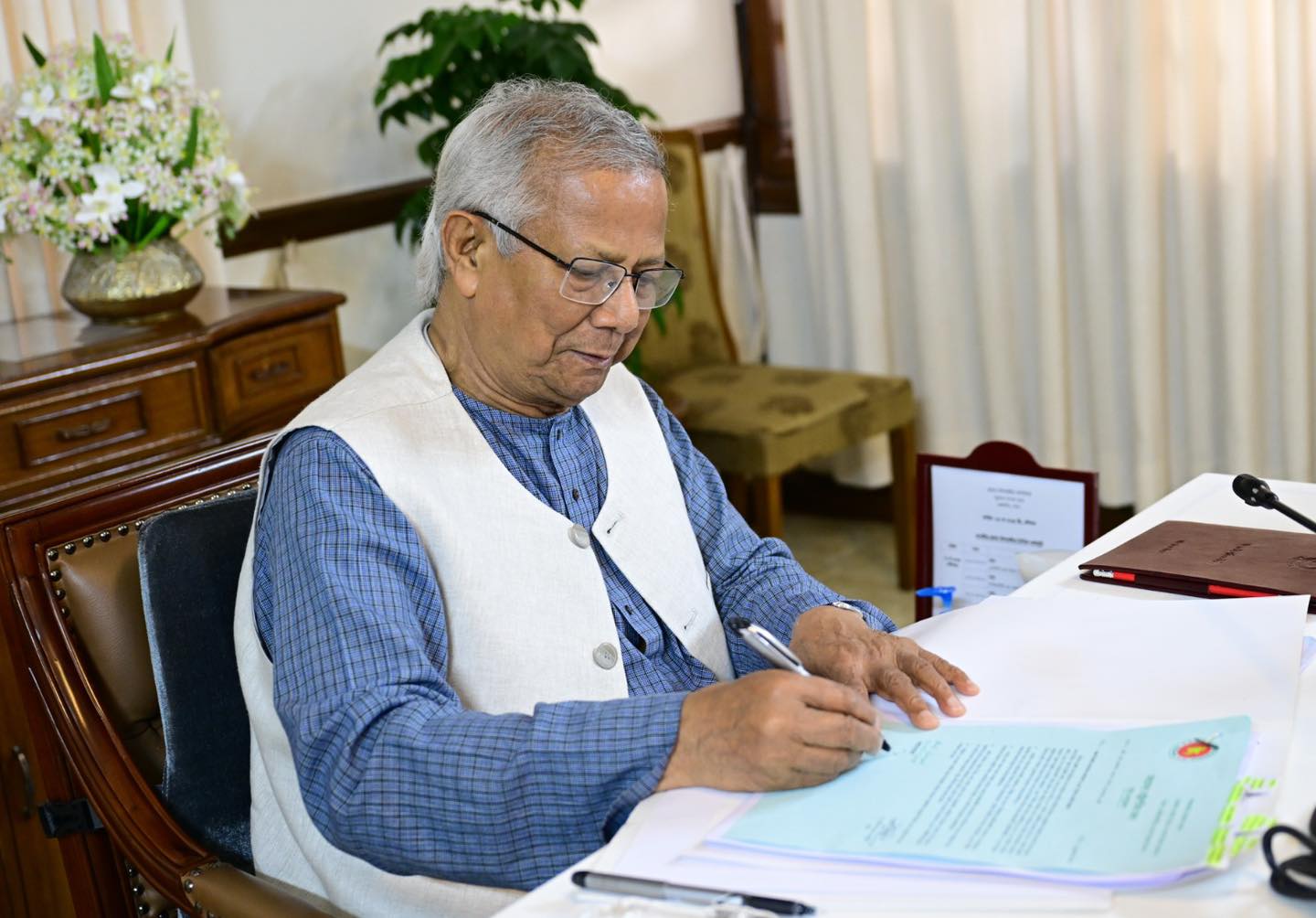An ordinance promulgated on Sunday night now prohibits any form of publicity — including press statements, social media content, or public gatherings — in support of any individual or entity charged under the anti-terror law.
The move appears to be directed at the Awami League, whose activities have already been banned by the interim government, with a gazette notification expected on Monday.
The ordinance amends Section 20 of the Anti-Terrorism Act, 2009, significantly expanding the scope of restrictions. Previously, the law referred only to “listed individuals or banned entities.”
The updated wording now applies to “any individual or entity against whom action has been taken under sub-section (1) of Section 18,” thereby broadening its reach to include any person or group designated under anti-terror provisions.
The amended section explicitly prohibits any form of publicity — including press statements, content shared on social media, or any public assembly — in favour of such individuals or organisations.
The draft amendments were approved earlier on Sunday at a meeting of the Advisory Council, chaired by Chief Adviser Muhammad Yunus.
A statement issued by the Chief Adviser’s Press Wing confirmed the changes, noting that the previous version of the Act lacked sufficient provisions to restrict the activities of banned organisations.
The statement said the amendments were “appropriate and necessary” to ensure the law reflects present-day realities and can be enforced effectively.
Under the revised law, the government is now empowered to list any individual or group as banned for involvement in terrorist activities.
Such designations are to be made through official notification in the government gazette, based on “reasonable grounds.”
These developments follow recent amendments to the International Crimes (Tribunals) Act 1973, which now empower special tribunals to try political entities — including the Awami League — for alleged genocide and crimes against humanity committed during the recent July–August uprising.
The interim government’s actions come amid growing public pressure, including mass protests, demanding that the Awami League be held accountable for its role in the violent suppression of a student-led anti-discrimination movement.
The crackdown during the final weeks of the Awami League administration is estimated to have resulted in approximately 1,500 deaths in July and August last year.
In an emergency session of the Advisory Council held on Saturday night, the interim government formally decided to ban the Awami League activities under the expanded provisions of the anti-terrorism legislation.
Legal and political analysts view these developments as a turning point in Bangladesh’s post-Awami League political landscape.
While supporters of the interim administration argue the measures are necessary to restore accountability and justice, critics have raised concerns about the potential curtailment of freedom of expression and the risk of misuse of such broad powers.


